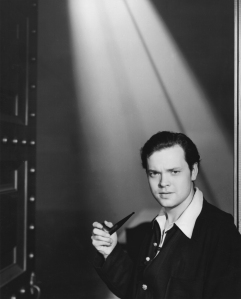Welles on My Mind

Rosebud ... yes, Rosebud Frozen Peas; full of earthly goodness and green pea-ness. Wait. That's terrible.
Oh, it’s time for another Orson Welles post. Today, it’s sponsored by this interview with Gary Kurtz over at A Site Called Fred. Here’s the relevant quote:
That experience led me to completely validate what other people had said about Welles, which was that Welles was a wonderful, wonderful filmmaker, but he suffered from the fact that he didn’t have a team around him that knew how to control him. It’s kind of like a steam engine – if a steam engine, generating steam, isn’t focused so that all the steam goes out the right part, then the thing blows up. And, if it goes out the right part, then it can drive the ship or the engine very, very well. Welles’ best films were the ones where he was under the auspices of a studio machine, basically, where he could use his vision within the controls that were placed upon him.
–Gary Kurtz
Kurtz brings up the toxic effect the Auteur Theory had on movie-making as the Studio System was in decline. With directors now empowered as the author of their films, they lost the important sounding-board of their producers who could tell them no.
Being told no is an important part of any creative endeavor. So important, I’d call it one of the 36 Chambers of Writing. Limitation is how art thrives and flourishes. Welles is forever an interesting example because he had, for a brief moment, complete creative freedom and it pretty much destroyed him. That autonomy turned him into the wine-shilling pitchman we love to satirize. While Kubrick is the paragon of artistic freedom, Welles is, ultimately, the warning to all those people who believe their vision should not be constrained by prosaic concerns. The fact is, without those parochial influences, “art” just turns into smelling your own shit.
Or selling fish-sticks.





One Comment
Leave a CommentTrackbacks